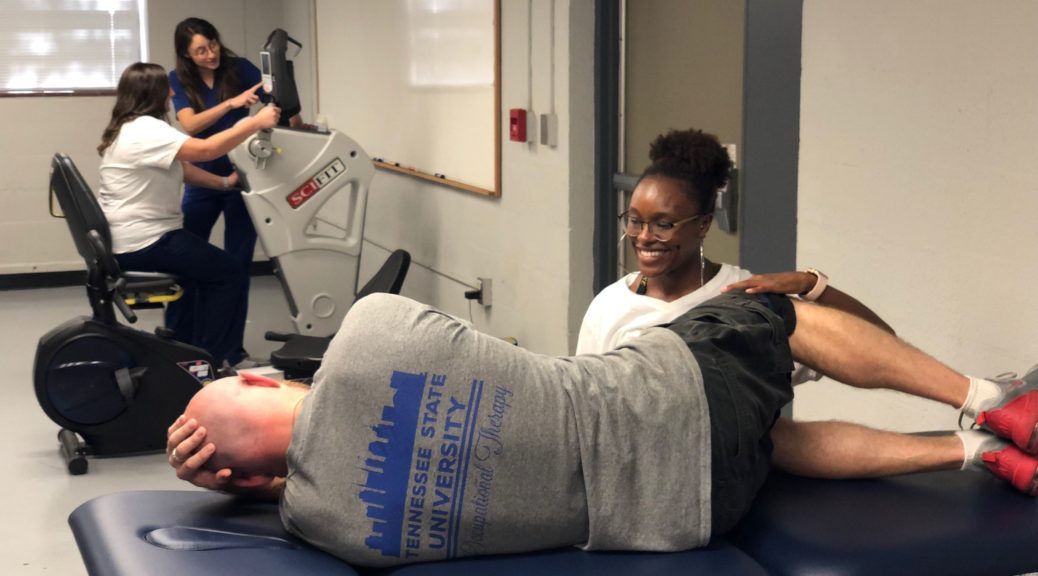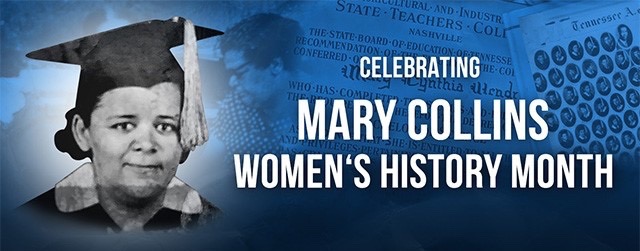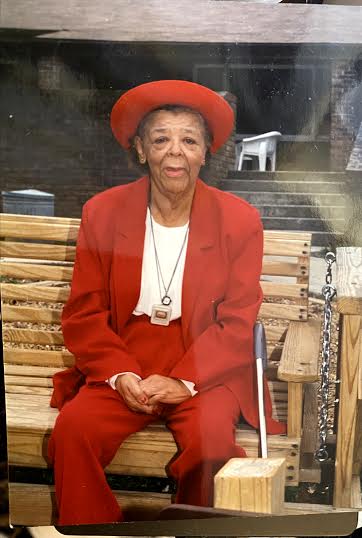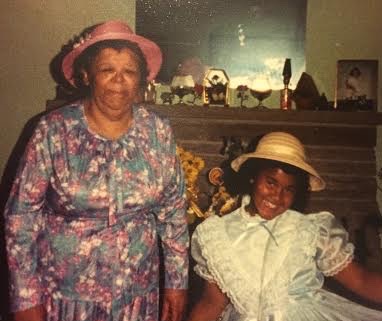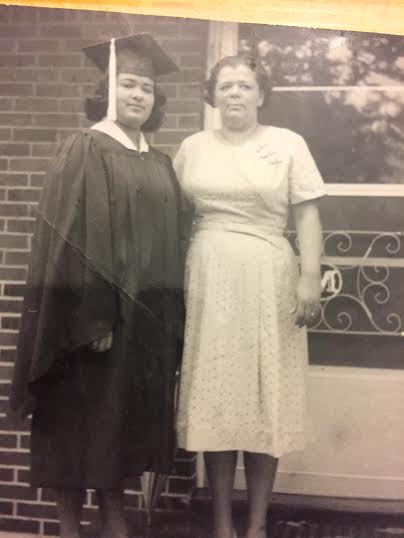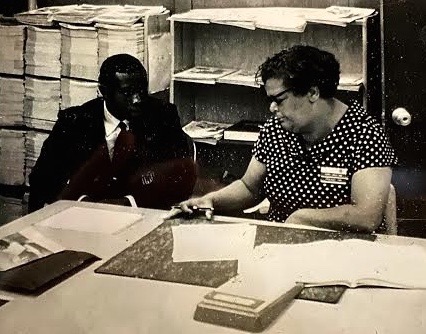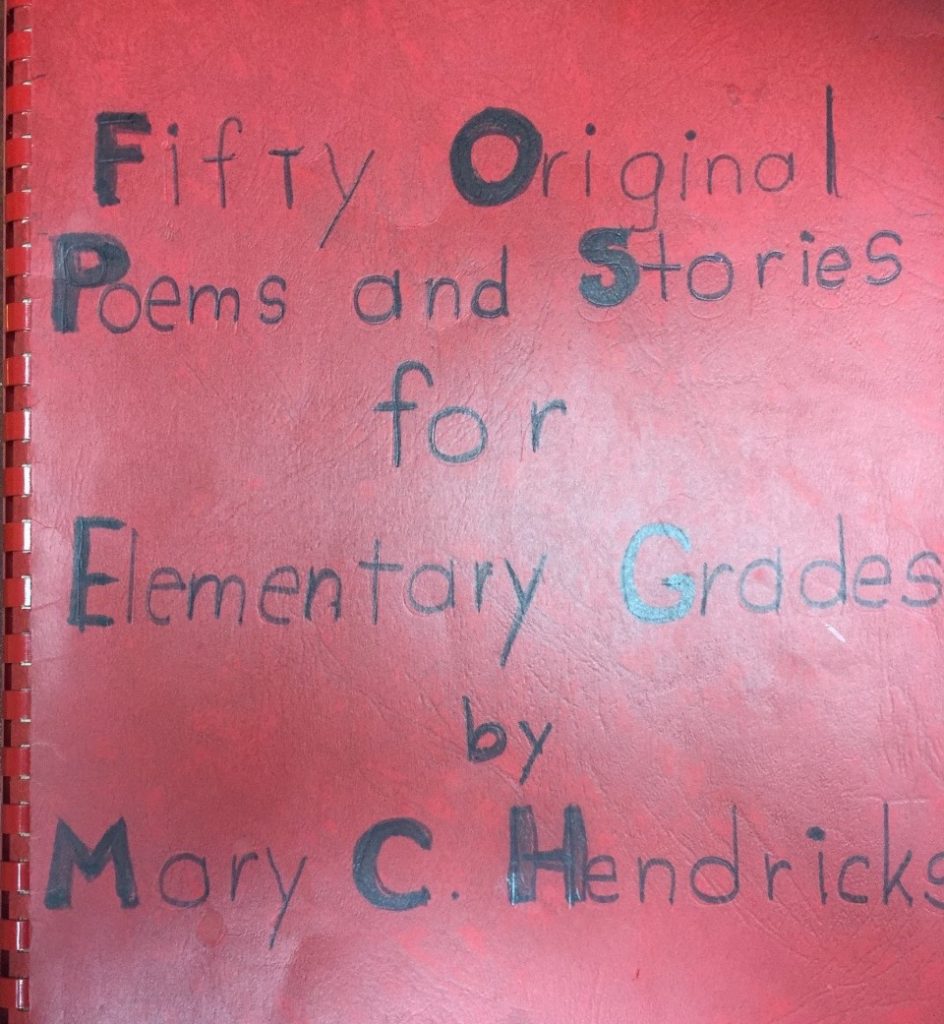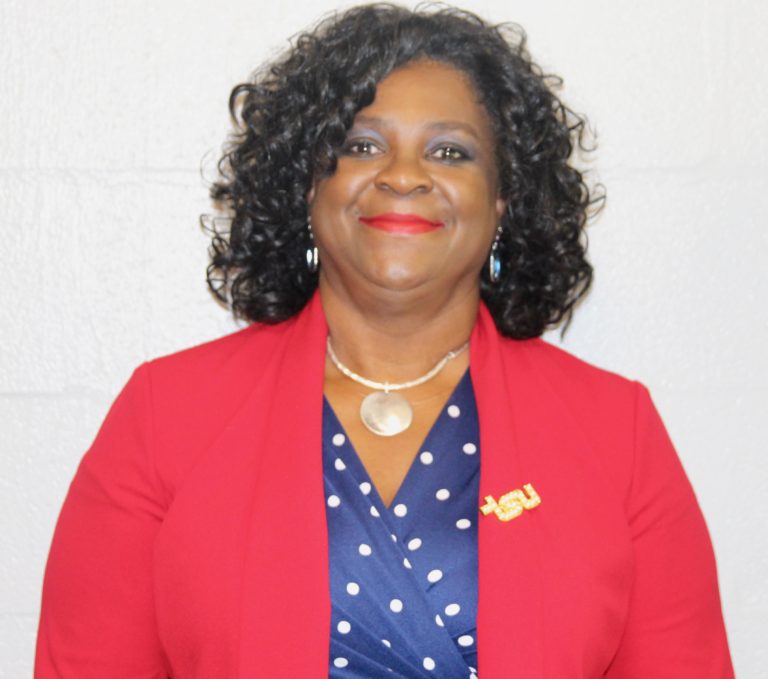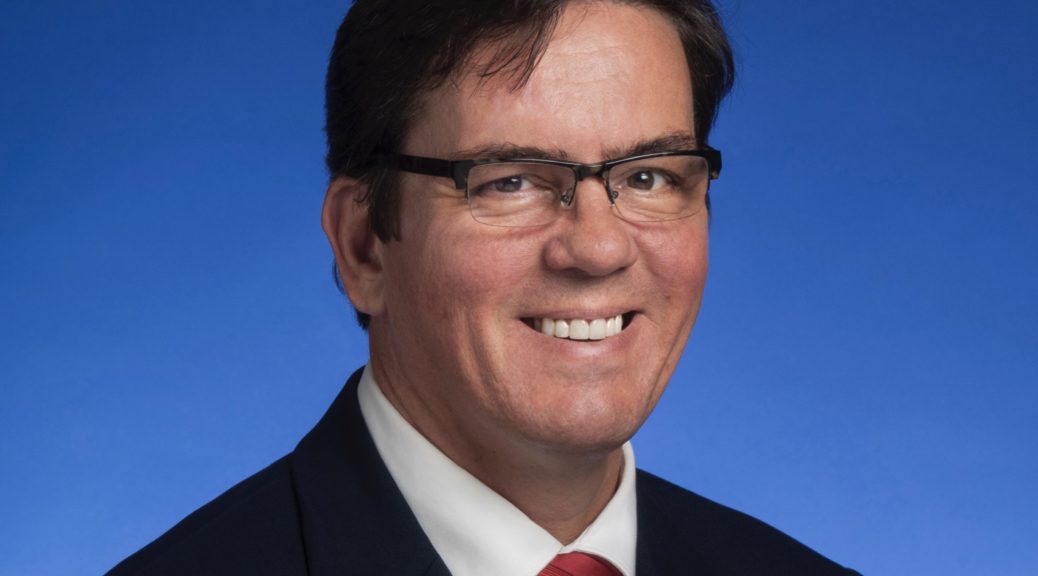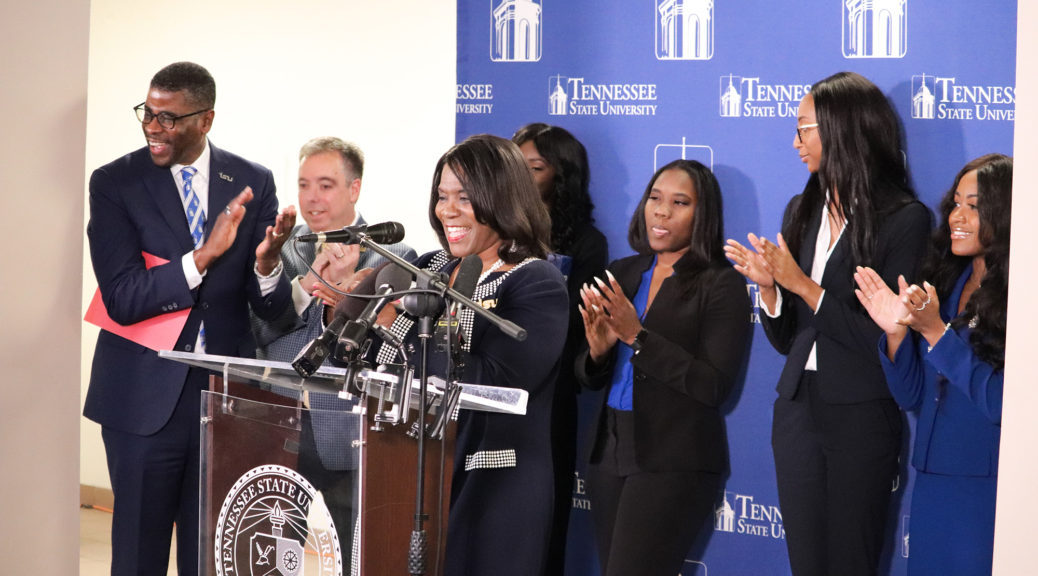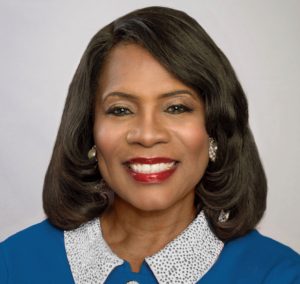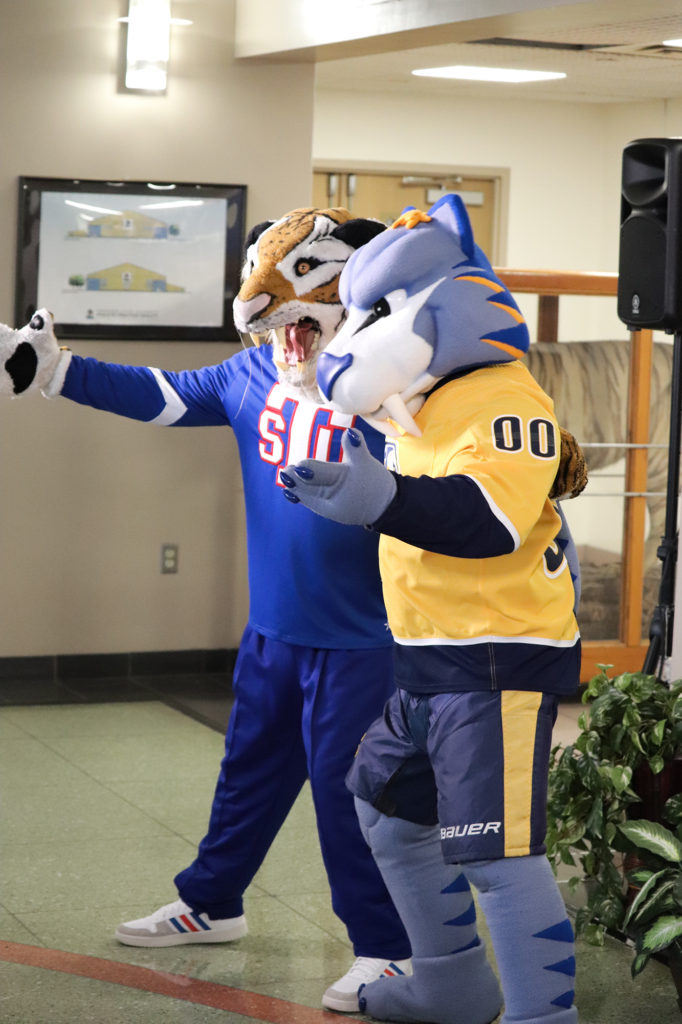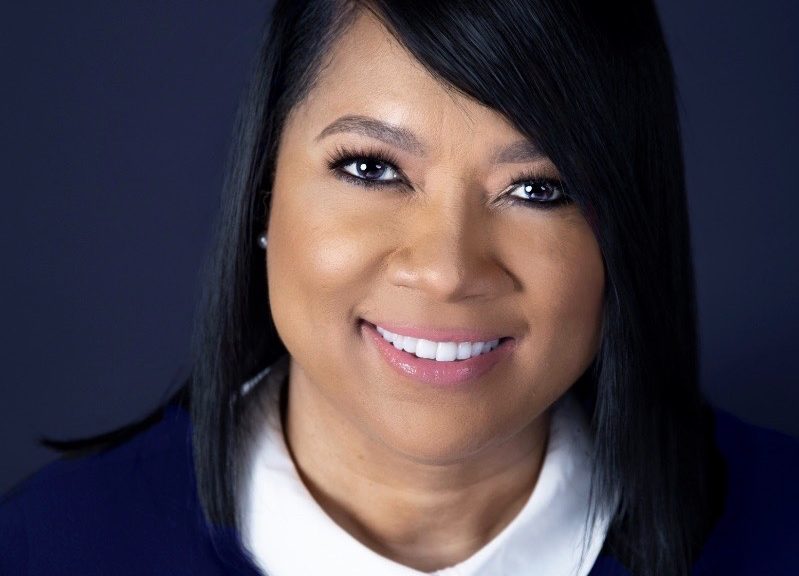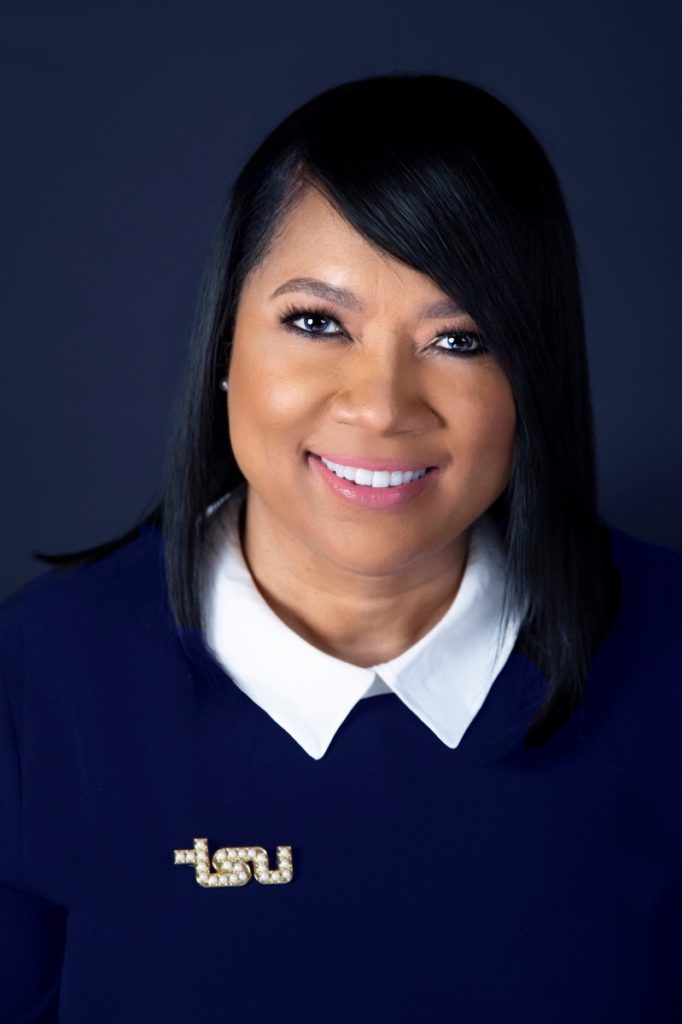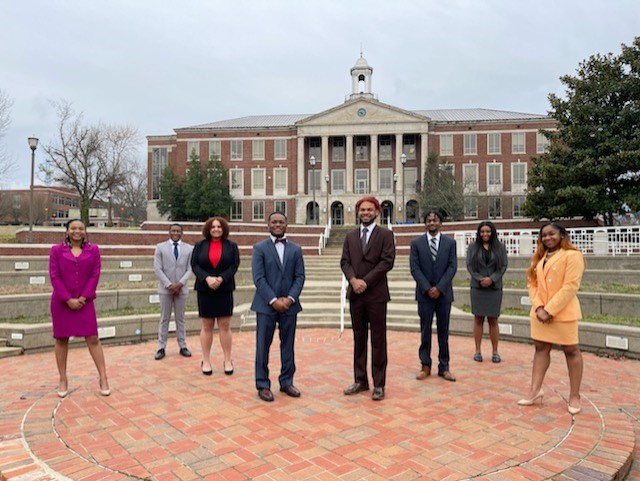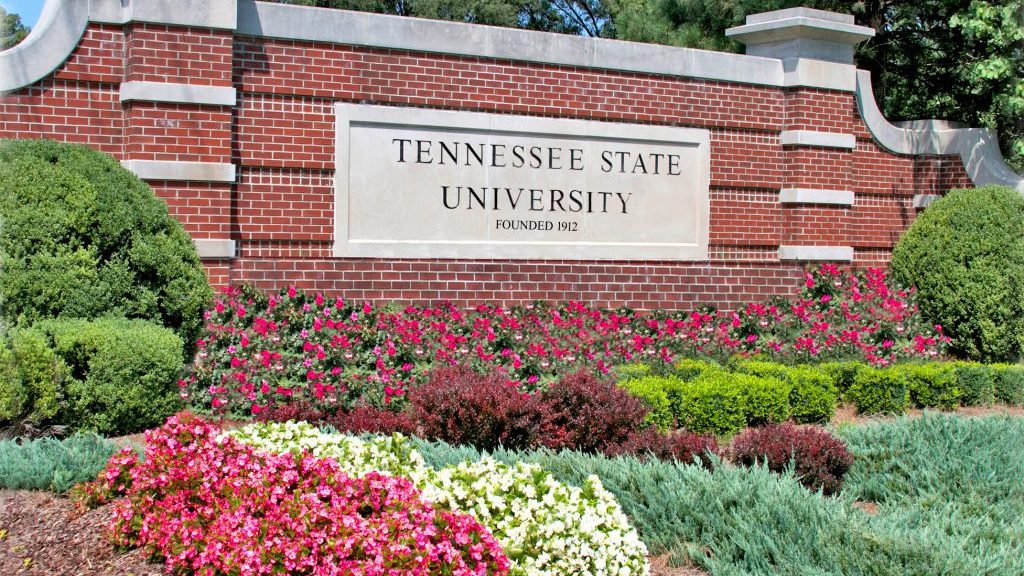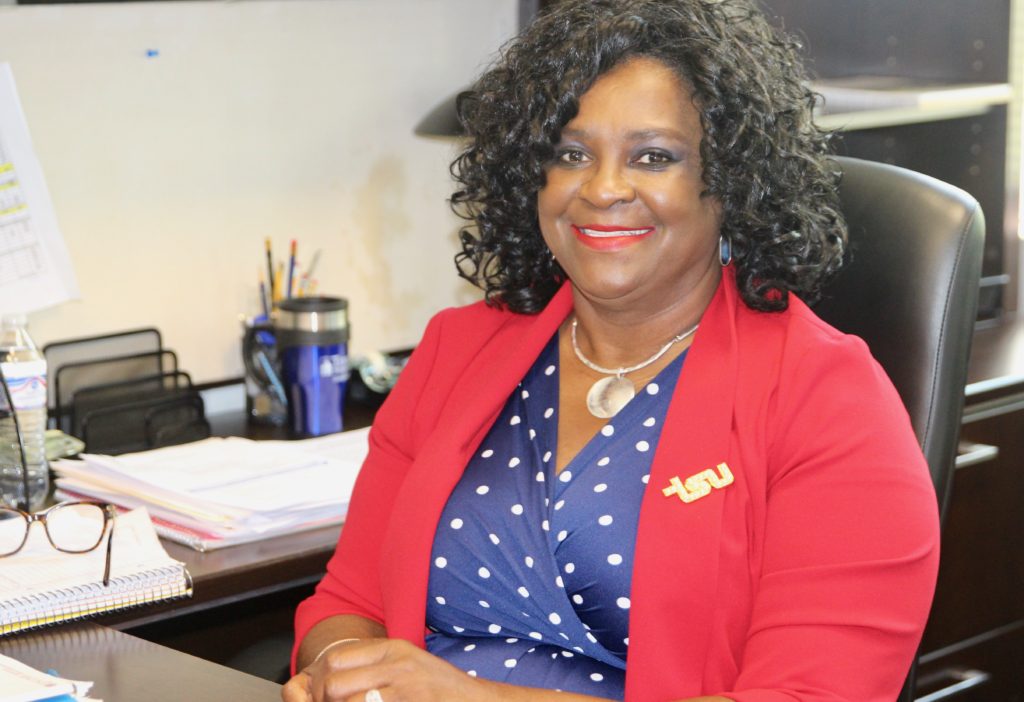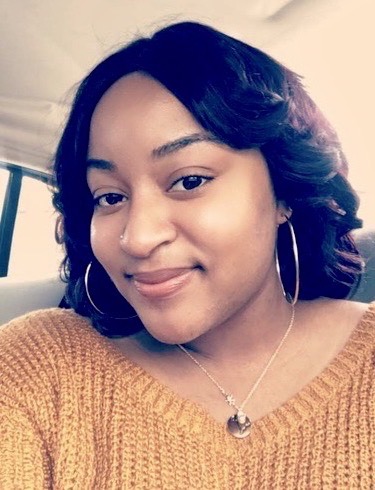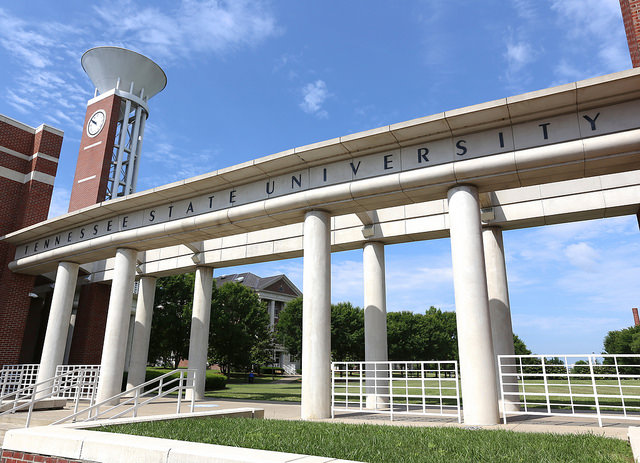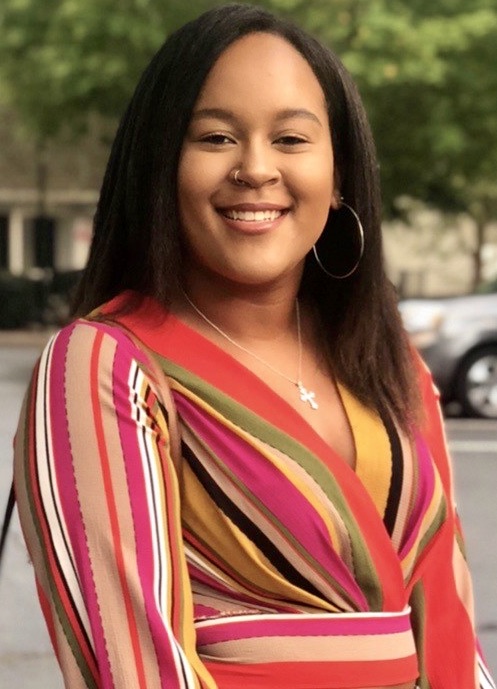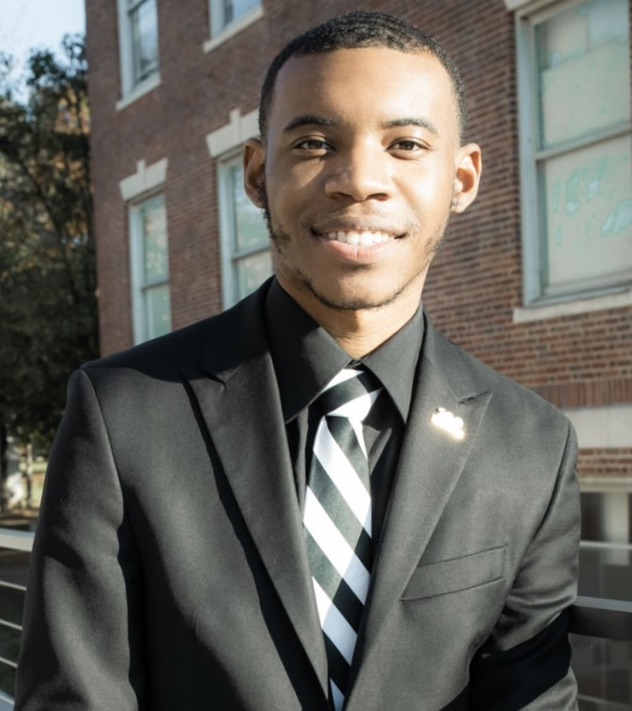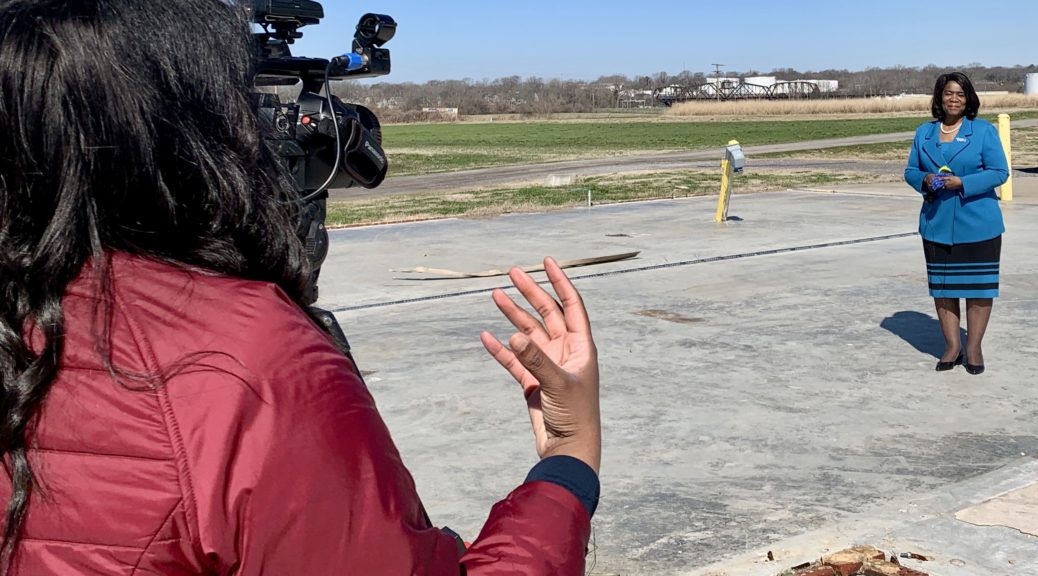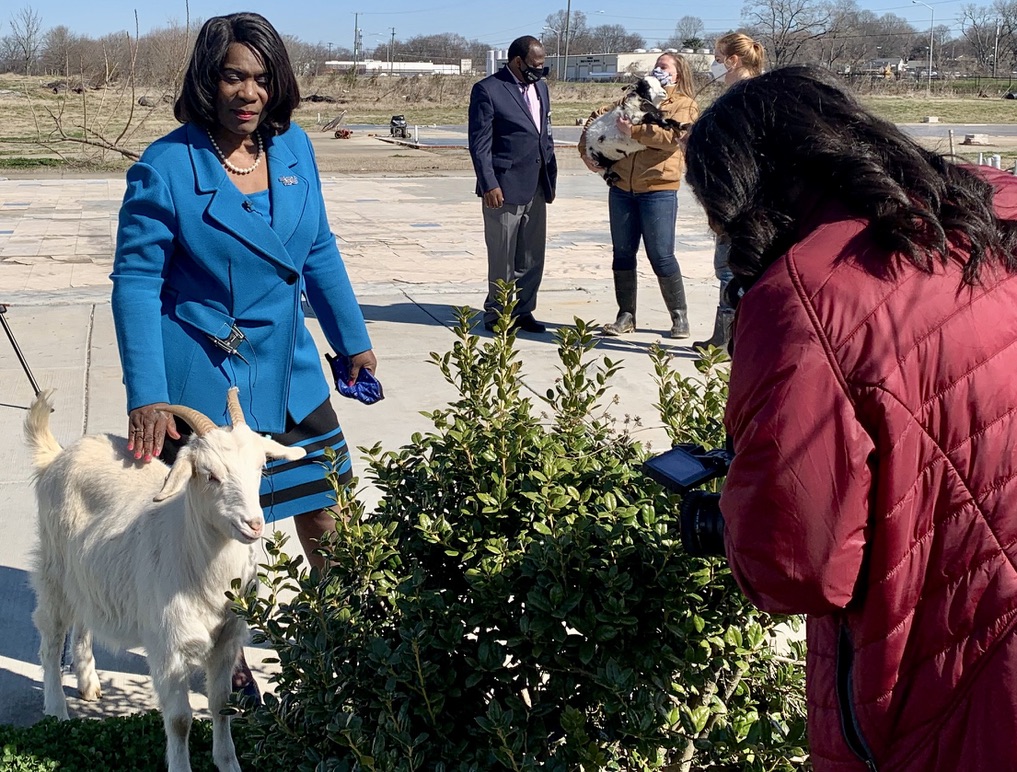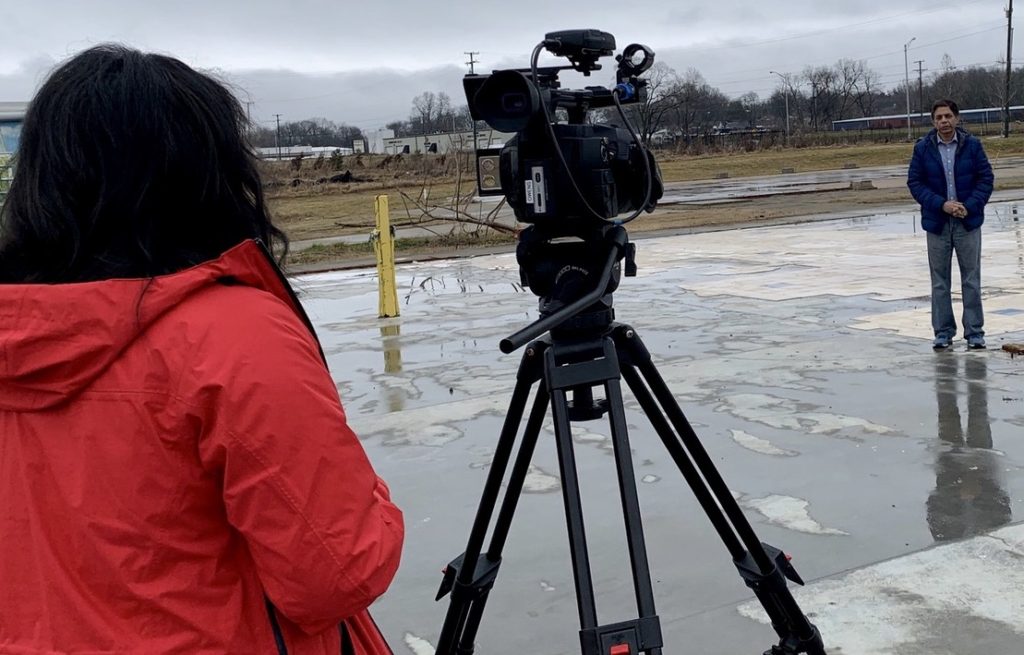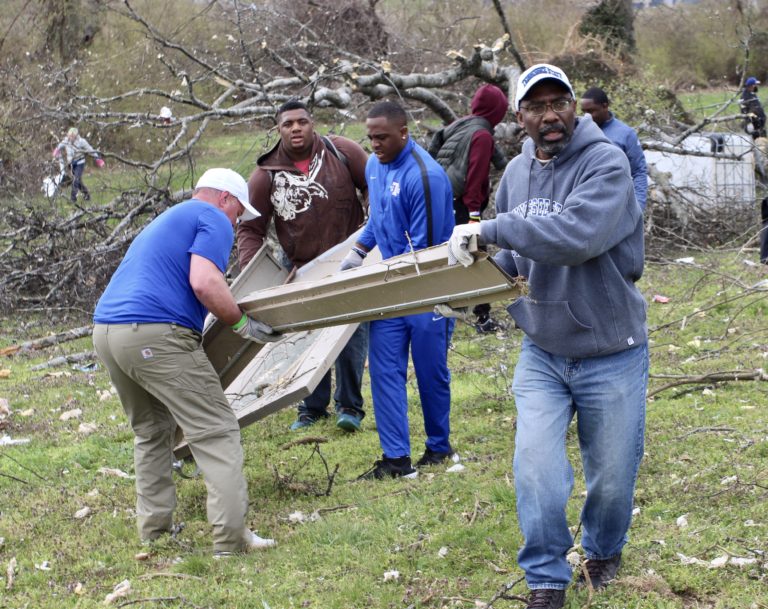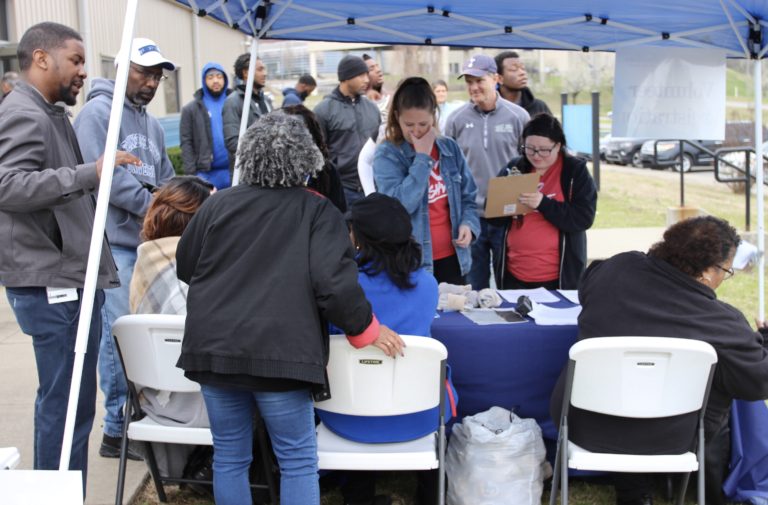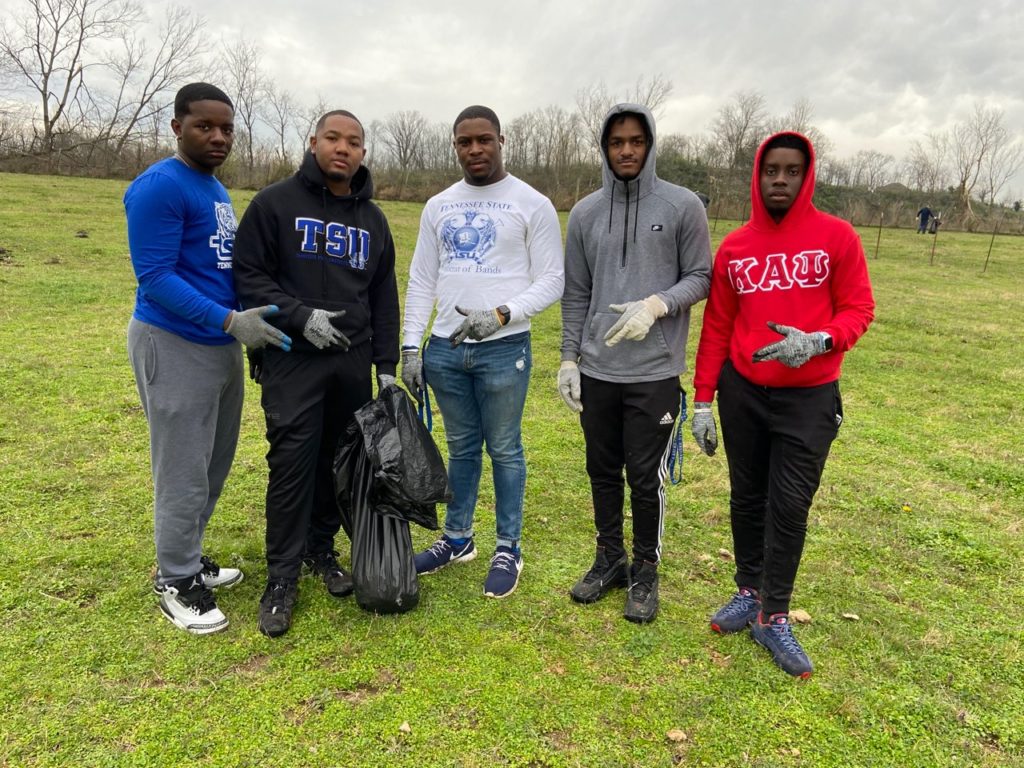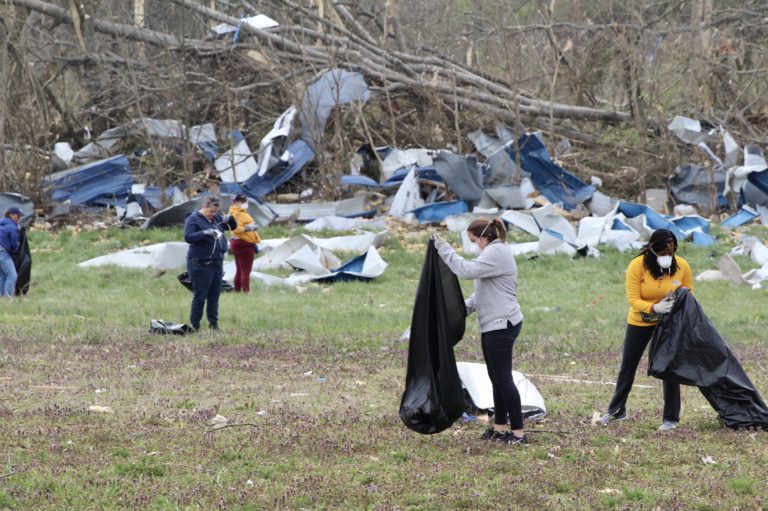NASHVILLE, Tenn. (TSU News Service) – The pandemic has not stopped Tennessee State University’s clinics from caring for people in the community and providing real career experience for those interested in healthcare as a profession.
The College of Health Sciences has three clinics that provide services free of charge or based on the ability to pay. They are the Tiger Community Rehabilitation Clinic, Dental Hygiene Clinic, and Speech Pathology and Audiology Clinic. All three are continuing to provide service to the campus community, as well as people in the surrounding Nashville community.
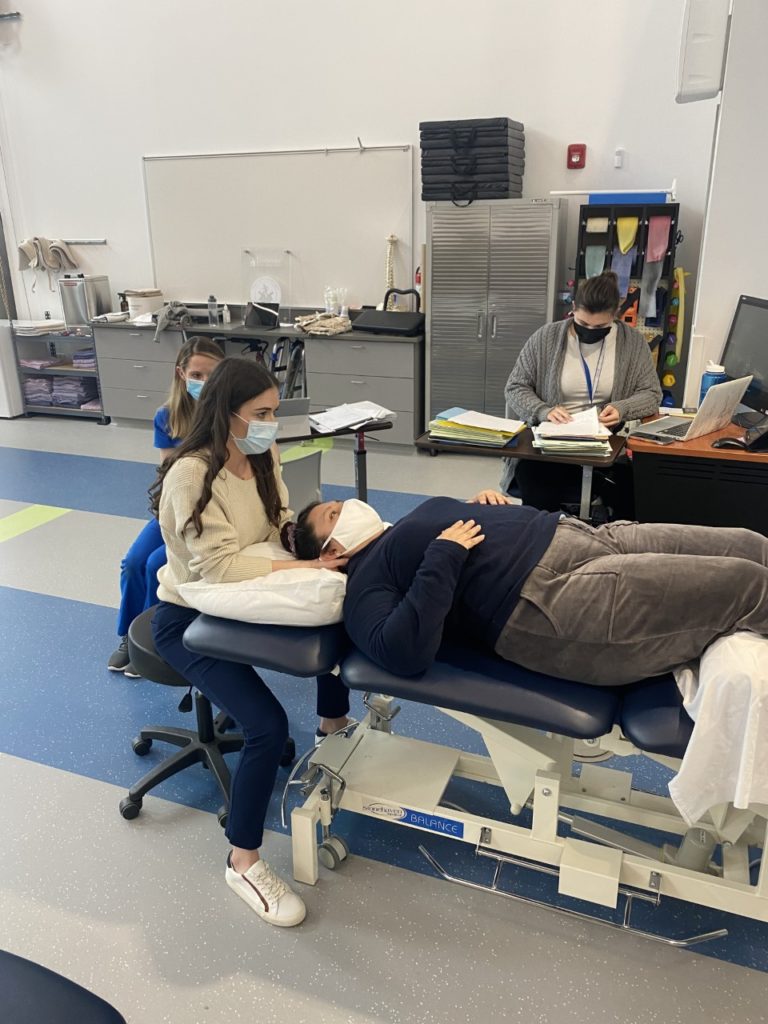
“The three clinics offered through the College of Health Sciences are platforms not only for students to immerse themselves in their professions through faculty-supervised clinical instruction, but also for students and faculty to provide no- or low-cost care to the various communities they serve,” said Dr. Ronald Barredo, dean of the College of Health Sciences.
Dr. Rick Clark is assistant professor of physical therapy at TSU and director of the Tiger Community Rehabilitation Clinic, the first student-run physical therapy/occupational therapy clinic at a historically black institution.
Clark said the services of the Rehabilitation Clinic, as well as the other clinics, is more important now than ever.
“I think what we’re doing is absolutely so very, very needed,” said Clark, who was in the military for 25 years and ran multiple clinics. “With COVID-19, people are kind of confined to their homes, not getting out and being as active. We’re able to get them in and start getting them on that path to recovery, better health.”
Clark said the clinic mainly handles cases like knee injuries, shoulder pain, and lower back pain. The more serious cases are referred out to physical and occupational therapy clinics in the area.
“We want to make a difference in the lives of our patients, which is really what our goal is,” said Clark.
All the clinics, like the university as a whole, adhere to strict protocols to make sure that everyone is safe amid COVID-19.
“We have adjusted how we operate to make sure everyone is safe during the pandemic, but have not changed our quality of care,” said Amber Oliveri, a first-year graduate student from Ellicott City, Maryland, in the Master’s of Occupational Therapy Program.
“It’s been a challenge, but we’ve managed to keep all of our students, faculty and staff safe during the pandemic,” said TSU Professor Gary-Lee Lewis, head of the Dental Hygiene Clinic.
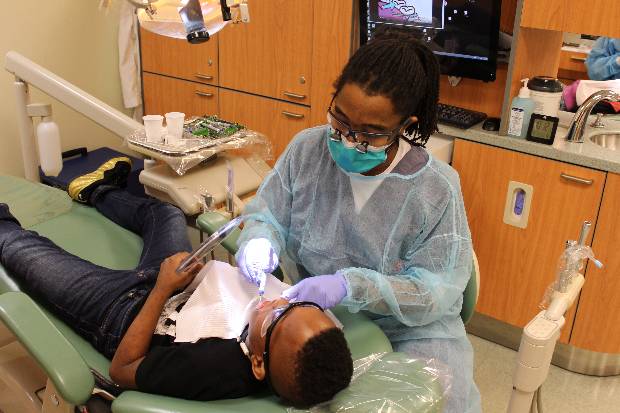
The clinic recently restarted in-person patient visits and provides services like cleanings, cancer screenings, and general patient education about good hygiene.
Before the pandemic, the dental clinic provided service to nearly 600 patients a year, including faculty and students, as well as the Nashville community.
Dental Hygiene major Cleopatra Peden acknowledged the pandemic has caused some of her peers in the program to reconsider their major. But the senior from Gallatin, Tennessee, is unwavering.
“The pandemic is not going to affect me continuing in this career,” said Peden. “Yes, there are safety concerns right now. But people still need dental care, they need us. And it just makes me want to help them that much more.”
Dr. Tina Smith is head of the Speech Pathology and Audiology Clinic. She said the audiology part of the clinic is not seeing patients right now because of the pandemic. However, she said the Department of Speech Pathology is using telepractice, or teletherapy, which has allowed first-year graduate students to continue seeing patients since the pandemic first started last year.
Matthew Norcia is a first-year grad student from Owensboro, Kentucky, majoring in Speech and Language Pathology. He said the transition to teletherapy was challenging initially, “especially for those of us who are having clients for the first time.”
“But with an extreme work ethic, we have been able to handle the adversity and continue to address the needs of each client and further develop their speech and language skills,” said Norcia. “Overall, this experience has been enlightening and beneficial as teletherapy may become a normal form of treatment even after the pandemic is over. Being able to continuously provide for the community through these trying times has been such a rewarding experience and we look forward to continuing our work.”
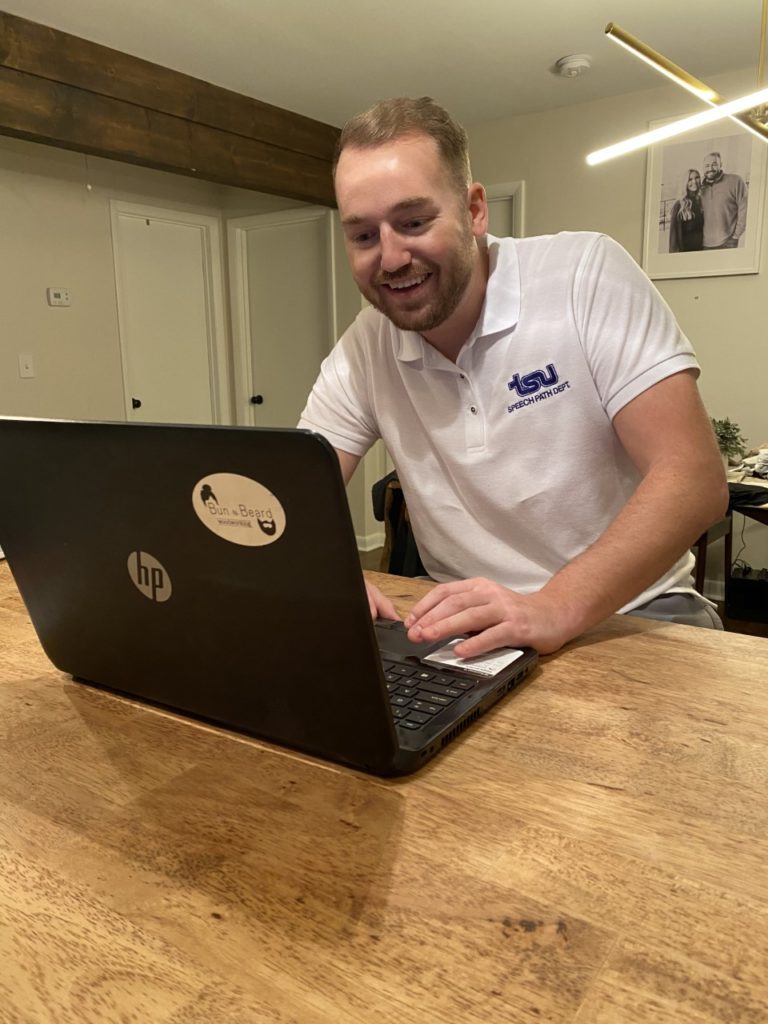
The Tiger Community Rehabilitation Clinic is now located in the university’s new state-of-the-art Health Sciences Building, which has classrooms, spaces for clinical simulations, labs and offices. The Speech Pathology and Audiology Clinic is on TSU’s Avon Williams Campus near downtown Nashville, and the Dental Hygiene Clinic is in Clement Hall on the main campus. Students usually get top jobs in their fields upon graduation because of the real-world experience they receive at the clinics
Averie Conn recently received therapy at the Tiger Clinic and is glad she did.
“I have been having some neck and upper back pain that was interrupting my function and participation in some of the activities I want and need to be able to do,” said Conn. “The students and their supervisor who treated me helped reduce not only the pain I was having on the day I visited the clinic, but the days following as well. They were very helpful in talking me through what clinical signs and decisions they were making, and broke down the next steps I should take in a logical and easy-to-understand way.”
Conn said the Tiger Clinic, as well as the others offered at TSU, are “invaluable to the community.”
“Some of the barriers to accessing healthcare are the lack of public knowledge about how and where it is accessible, and how much the service is going to cost,” she said. “Unfortunately, many people are willing to live in discomfort, pain, or with other clinical symptoms simply because healthcare is not easily accessible or affordable.”
Hours of operation for the Tiger Community Rehabilitation Clinic are Fridays 8 a.m. to 4:30 p.m. (Health Sciences Building, Room 212). To make an appointment call: 615-815-4359, 615-963-7184 or email: TSUTigerClinic@gmail.com.
Services for the Speech Pathology and Audiology Clinic are currently being provided on Monday and Wednesday or Tuesday and Thursday 9 a.m. and 5 p.m. through telepractice. To make an appointment call: 615-963-7072.
The Dental Hygiene Clinic is open Monday through Friday 8 a.m. – 4:30 p.m. Hours of operation during the pandemic: On-site – Mondays and Wednesdays 9 a.m. to 5 p.m.
Remote: Tuesday, Thursday and Friday.
To make an appointment call: 615.963.5791 or email:DHClinic@tnstate.edu
For more information about TSU’s College of Health Sciences, visit https://www.tnstate.edu/health_sciences/clinics.aspx.
Department of Media Relations
Tennessee State University
3500 John Merritt Boulevard
Nashville, Tennessee 37209
615.963.5331
About Tennessee State University
Founded in 1912, Tennessee State University is Nashville’s only public university, and is a premier, historically black university and land-grant institution offering 39 bachelor’s degree programs, 24 master’s degree programs, and eight doctoral degrees. TSU is a comprehensive research intensive institution with a R-2 Carnegie designation, and has a graduate school on its downtown Avon Williams Campus, along with the Otis Floyd Nursery Research Center in McMinnville, Tennessee. With a commitment to excellence, Tennessee State University provides students with a quality education in a nurturing and innovative environment that prepares them as alumni to be global leaders in every facet of society. Visit the University online at tnstate.edu.
